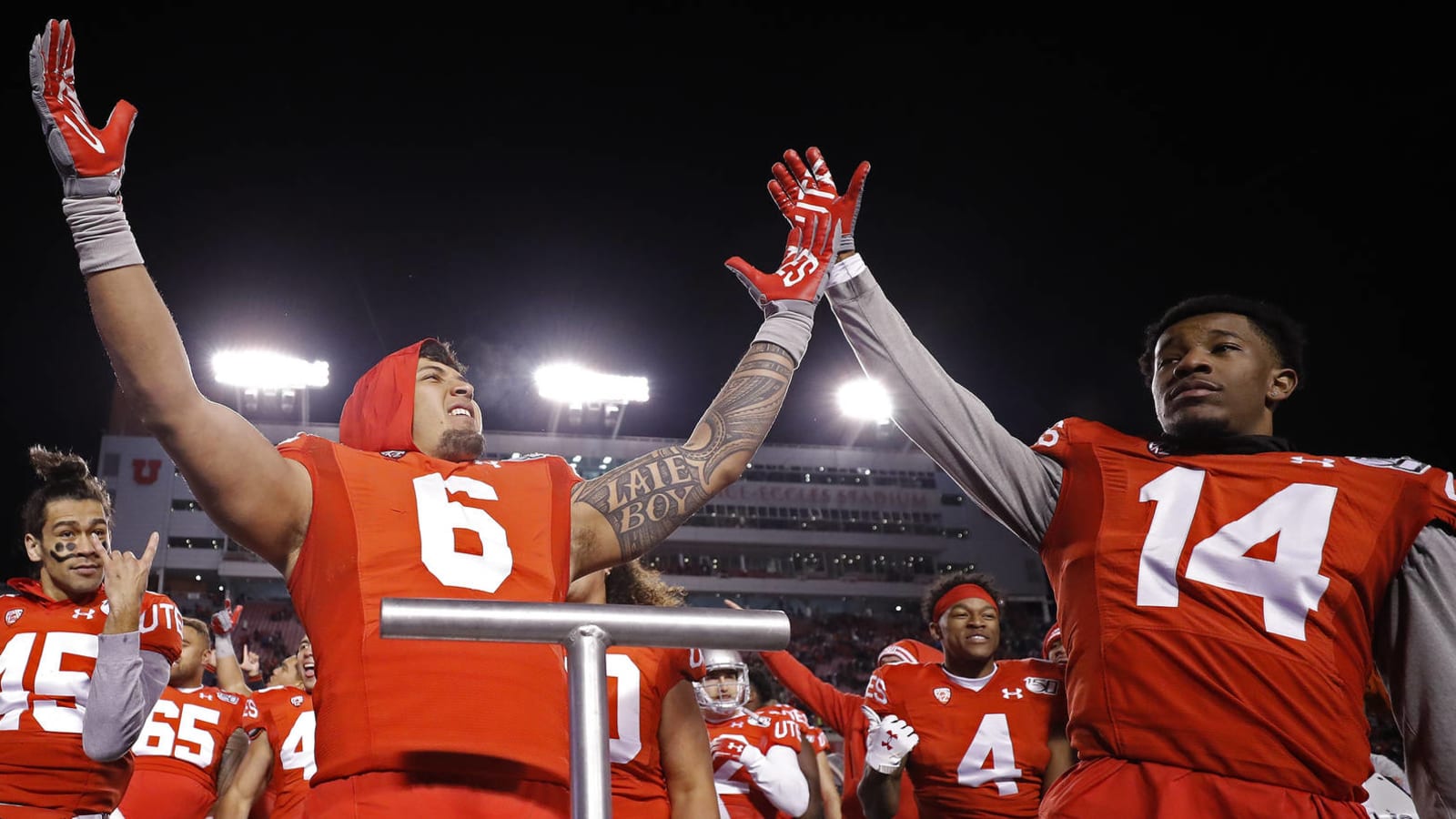
Why Utah probably will get shafted by CFP committee
Six seasons ago, as the initial dozen members of the College Football Playoff committee revealed their final rankings, its chairman, Arkansas athletic director Jeff Long, made an utterly absurd proclamation: “We really don’t deal in hypotheticals.”
If one sentence could encapsulate all of college football’s outright hypocrisy and silliness when it comes to determining a national champion, that was it.
Six seasons later, here we are again: Unless something utterly insane occurs this weekend, yet another Playoff committee will deal in yet another series of hypotheticals, as it makes its final choices next Sunday. This is how it works, because this is how it always works, because college football is too sprawling to do it any other way.
In this case, the top three Playoff seeds — Ohio State, LSU and Clemson — all feel pretty solid, presuming they do not falter in their respective conference championship games this weekend. But the No. 4 seed? That will be nothing but an exercise in speculation. And my sense of it is that when hypotheticals are the only way to decide between a pair of teams, the committee is going to choose the bigger brand name.
Let us ponder the possibilities now that Alabama, after its madcap loss to Auburn last Saturday, has been eliminated from the mix (I presume) for the first time in the brief history of this Playoff era. Let us presume, for instance, that the expected occurs and Oklahoma defeats Baylor in the Big 12 championship Saturday and Utah defeats Oregon in the Pac-12 title game Friday. Let us also presume that LSU defeats Georgia in the SEC championship game, thereby opening up a clear path for the No. 4 seed to be either the Pac-12 or Big 12 champion.
Oklahoma would be 12-1. Utah would be 12-1. Oklahoma has a slightly better strength of schedule, largely because it plays in a slightly better conference. Utah’s wins, however, have been more dominant — 10 of their 11 victories so far have been by double digits. Utah lost by seven points on the road to an 8-4 USC team; Oklahoma lost by seven points on the road to an 8-4 Kansas State team. Tell me you can definitively differentiate between these teams, and you’re probably lying. There is no good way to decide which is better except to rely on hypotheticals.
But really, does anyone actually believe that the committee would choose Utah, a respected but marginal team in a struggling conference, over Oklahoma, a Playoff regular with a trendy coach and some of the best athletes in the country? The sharps in Las Vegas don’t seem to think so. “I think Utah is going to get the shaft,” one sportsbook director said, according to the Los Angeles Times.
I tend to agree. I tend to think that a decision being made by a dozen football people in a conference room is subject to groupthink, and I tend to think that it’s much easier for groupthink to lean toward the “eye-test,” which will no doubt favor a team with better natural athletes. That’s why Alabama landed in the top four despite having a marginal case a couple of years back; that’s why Ohio State got in over Big 12 teams TCU and Baylor during that first Playoff selection back in 2014.
The fact that Ohio State went on to win the national title that year only solidified the notion that this selection process is about choosing the “four best” teams. It set a precedent that allowed the committee to make the more popular brand-name choice, all other things being equal. In a way, I can’t blame it.
While the committee members are tasked, above all else, with objectivity, there’s an unspoken subtext lingering in that room: What if we produce a dud of a final four? What if the ratings are terrible and the games are terrible? Wouldn’t it be easier to imagine Oklahoma having the athletes to run with Ohio State, rather than Utah?
Outside of Playoff expansion, I’m not sure there’s a way around this conundrum. And even then — if, say, college football moves to an eight-team system with five conference champs and three “wild cards” — it’ll still come into play. College football is the most truly American of all the sports, and part of the way this manifests itself is by consistently rewarding the entities that are already in power. This is why the hypotheticals, inevitable as they may be, will always gravitate toward the top.
More must-reads:
- Top storylines for college football's conference championship games
- Playoff committee could decide to leave out either Pac-12 or Big 12 champion
- The 'No. 1 overall pick in the MLB Draft' quiz
Breaking News
Customize Your Newsletter
 +
+
Get the latest news and rumors, customized to your favorite sports and teams. Emailed daily. Always free!

